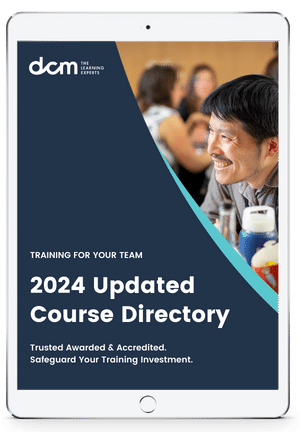5. Be in problem-solving mode with your team
Problem-solving skills are fundamental in your management skills arsenal, as it’s inevitable that you and your team will face challenges and difficulties. Time spent looking for who’s at fault is time that is not spent on learning or finding solutions.
Management is in part about making calls and being confident in your decision-making skills and problem-solving techniques, but more so about helping your team hone in on these same skills and become more autonomous.
Coaching your team through adversity will enable them to take the lead on future problems and make better decisions by themselves.
Tip: Instead of giving the answer, ask questions that challenge assumptions to help employees find the root of the problem. For example, “Why did you use this method?” or “How did you come to that conclusion?
6. Give constructive feedback — and be able to take it, too
Giving and accepting constructive feedback is amongst the hardest roles a manager has. That being said, it is unquestionably one of the most important skills you’ll need to build. Employees want feedback! The more you openly discuss mistakes or areas of improvement, the more positive your employees’ experience will be. When employees see that they can apply learnings that help them grow in their career, constructive criticism becomes widely appreciated. Giving constructive feedback is about coaching your employees on how to improve, and then agreeing on actionable next steps. It’s all about how you deliver the feedback, as that will dictate how it’s received.
Tip: Don’t wait. Give feedback in a timely manner so employees can start improving right away or feel the recognition immediately. It’s just as important to ask for feedback from your employees. Especially as a first-time manager. Don’t bank on annual reviews to bring up potential issues or to ask about how you’re doing in your role. Just like your employees, you want to improve as well.
7. Develop your emotional intelligence
Human skills are an indispensable element of modern management. Developing your emotional intelligence (EQ) can help you connect with your employees, understand them, and empathize with them. This kind of perspective gives you a well-rounded view of your people professionally and personally, so you know where extra support may be needed. It will help you deal with conflict, low performance, and even increase motivation.
The process of developing your emotional intelligence in part means getting to know yourself better too, promising as much personal development as it does team development. Having the ability to identify your own biases and emotional triggers will help you become a better version of yourself, and therefore a better leader.
8. Be inclusive and build belonging
Having team members from various backgrounds and experiences is beneficial to not only your team but to the whole company. Diversity brings unique perspectives, which increases the variety and creativity of ideas that surface. Lead by example to develop a culture of inclusion. How? Be yourself and promote vulnerability and authenticity. Likewise, boost your active listening skills. Be curious! Listen intently to employees’ ideas, concerns and pain points. Then, make sure to factor your team members’ opinions and feedback into your decision-making process.
What’s next?
Developing your management skills as well as your management style will come with time and experience. As much as management is about empowering your employees and leading them to become an effective team, you also must take time to grow and develop in your own role. Don’t forget, you’re a part of the team too, and your success and performance are directly linked to theirs. Treat every day as an opportunity for growth, and commit to strengthening your managerial skills to become the best manager you can be for your team.
5 Takeaway tips to develop your management skills
1. Always be mindful of how you express yourself in writing or in person, as well as your non-verbal communication.
2. Take the time to learn your employees’ strengths, then apply this to how you form a team or delegate tasks.
3. Guide your team to come to their own conclusions instead of solving problems for them to make learnings more poignant.
4. Give feedback in a timely manner, especially constructive feedback, so employees can start improving right away.
5. Work to develop your emotional intelligence and human skills because relationships are at the base of your role.
FAQ's
- What are the most important skills for new managers?
The most important skills for new managers include effective communication, time management, teamwork and collaboration, delegation based on strengths, problem-solving, giving and receiving constructive feedback, developing emotional intelligence, and fostering an inclusive team environment.
- How can effective communication improve management?
Effective communication helps managers build trust, ensure clarity, and align team goals with the company’s mission. It enhances transparency, reduces misunderstandings, and fosters a positive work environment, which can lead to improved team performance and job satisfaction.
- What are some tips for managing time as a new manager?
To manage time effectively, new managers should focus on understanding their team’s workflows, setting clear priorities based on business goals, avoiding micromanagement, and promoting work-life balance. Regular check-ins and optimizing processes can also help enhance time management.
Source: Office Vibe
Inhouse Tailored Training for your Team
We provide training programs that are developed by industry, for industry. Our range of programs can be delivered in a way that suits the needs of your business to offer your employees learning that is accessible and flexible.
We add value to your business by providing specialised, flexible and scalable training that meets your training needs. As your workforce grows and evolves, our globally certified and industry-validated learning solutions can assess, train and qualify your employees. For more information on how we can help please visit the in-house training page.
Membership, Stay Connected. Stay Relevant.
Completing a program is a point-in-time exercise that delivers huge value, but there is a next step to maintaining the currency of your skills in the ever-evolving professional world.
Membership is the next step.
A unique platform, membership is designed to ensure that you are in tune and up-to-date with the latest tools, trends and developments. Being a member provides just-in-time training and continuous professional development, and an exclusive and evolving content library informed by subject matter experts and industry leaders.




_165x115_fc3.jpg)





